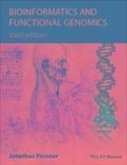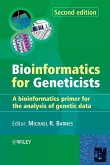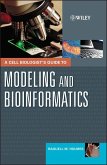The bestselling introduction to bioinformatics and genomics - now in its third edition Widely received in its previous editions, Bioinformatics and Functional Genomics offers the most broad-based introduction to this explosive new discipline. Now in a thoroughly updated and expanded third edition, it continues to be the go-to source for students and professionals involved in biomedical research. This book provides up-to-the-minute coverage of the fields of bioinformatics and genomics. Features new to this edition include: * Extensive revisions and a slight reorder of chapters for a more effective organization * A brand new chapter on next-generation sequencing * An expanded companion website, also updated as and when new information becomes available * Greater emphasis on a computational approach, with clear guidance of how software tools work and introductions to the use of command-line tools such as software for next-generation sequence analysis, the R programming language, and NCBI search utilities The book is complemented by lavish illustrations and more than 500 figures and tables - many newly-created for the third edition to enhance clarity and understanding. Each chapter includes learning objectives, a problem set, pitfalls section, boxes explaining key techniques and mathematics/statistics principles, a summary, recommended reading, and a list of freely available software. Readers may visit a related Web page for supplemental information such as PowerPoints and audiovisual files of lectures, and videocasts of how to perform many basic operations: www.wiley.com/go/pevsnerbioinformatics. Bioinformatics and Functional Genomics, Third Edition serves as an excellent single-source textbook for advanced undergraduate and beginning graduate-level courses in the biological sciences and computer sciences. It is also an indispensable resource for biologists in a broad variety of disciplines who use the tools of bioinformatics and genomics to study particular research problems; bioinformaticists and computer scientists who develop computer algorithms and databases; and medical researchers and clinicians who want to understand the genomic basis of viral, bacterial, parasitic, or other diseases.
Dieser Download kann aus rechtlichen Gründen nur mit Rechnungsadresse in A, B, BG, CY, CZ, D, DK, EW, E, FIN, F, GR, HR, H, IRL, I, LT, L, LR, M, NL, PL, P, R, S, SLO, SK ausgeliefert werden.
Hinweis: Dieser Artikel kann nur an eine deutsche Lieferadresse ausgeliefert werden.









